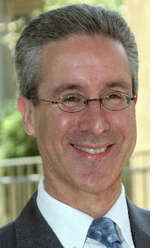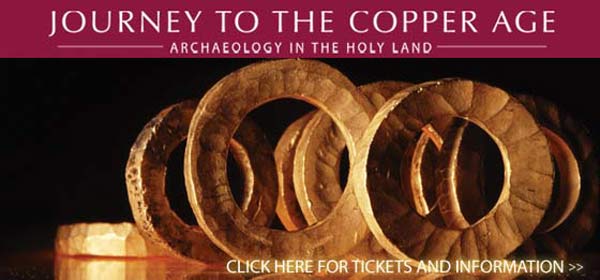| |
|


LETTER FROM JERUSALEM
Which zealots block Middle East peace?
By Ira Sharkansky
 JERUSALEM --In case you have not heard, the continuation of the Israeli-Palestinian conflict, and much else that is bad in the Middle East, is the fault of the Jews. JERUSALEM --In case you have not heard, the continuation of the Israeli-Palestinian conflict, and much else that is bad in the Middle East, is the fault of the Jews.
Not so much the Jews of Israel, as the Jews of the United States.
It is the zealous among them who demand that American politicians "mouth hawkish pieties and never . . . indicate any sympathy for Palestinians."
Because of this, "Israel’s travails continue. The very policies pushed . . . by supposedly pro-Israel advocacy groups have produced disaster for Israel. They ensured that U.S. assistance to Abu Mazen’s Palestinian Authority would be so stingy that Hamas would beat Fatah in the Palestinian elections. . . . They pressured the Bush administration not to insist on the immediate dismantling of the illegal outposts and checkpoints . . . They encouraged neither prisoner exchanges nor cease-fires, nor a permanent settlements freeze . . ."
This comes from the keyboard of MJ Rosenberg, the Director of Israel Policy Forum's Washington Policy Center.
Rather than mouthing pro-Israel platitudes and doing nothing to force peace, Rosenberg would have an American presidential candidate say, "I will do everything in my power to bring about negotiations between Israelis and Palestinians with the goal of achieving peace and security for Israel and a secure state for the Palestinians. As a supporter of Israel, I believe that Israel’s surest route to security is by reaching an agreement with the Palestinians."
There is a kernel of truth to what Rosenberg writes. Right wing "Jewish junk" is part of the discourse, produced by individuals who fear anything less than total victory over Arab evil, very soon.
Every once in a while, an overseas activist urges that Israel grant voting rights to overseas Jews. Predictably, the response includes a loud "Oy gevalt."
The fear is for zealots of the left as well as the right. What Israel does not need is giving the vote to people without the understanding and stake in what happens. No matter how emotional they may be in behalf of one posture or another for the sake of Israel, Diaspora Jews do not pay income taxes that reach the 35 percent bracket on the equivalent of about $5,000 monthly income, and 47 percent on $9,000, as well as a 15.5 percent sales tax; and they do not send their children into the IDF for two or three years that are boring and unproductive at the best, and likely to be dangerous.
Overseas zealots perceive the Middle East in blacks and whites, rather than many shades of gray. While those of the left would believe everything said by Arab spokesmen and give away the store in speedy negotiations, those of the right are unwilling to do anything other than exercise the maximum of fire power (and the cannon fodder of young Israelis) to protect what they see as Jewish interests.
Rosenberg's concern about right-wing zealots misses the essential point of the Middle East conflict. It is not overseas Jewish zealots who stand in the way of a settlement, but Palestinian zealots. Their control of Gaza is absolute, as is their rejection of Israel's right to exist. People like them may not control everything that occurs in the West Bank, but the mayhem they can produce if Mahmoud Abbas offers too much in negotiations gives them a veto in what optimists call the peace process.
Palestinian zealots do not need a formal right of veto. Abbas is closer to them than moderates in Israel or overseas would like to think. He does not simply mention the right of refugees, but continues to promote among his people the return to the world of 1947. Optimists say that he is just mouthing slogans that he will abandon as negotiations proceed. Maybe. But he expresses the rights of refugees often enough to suggests that he is serious.
If Abbas has paid attention to Israeli leaders of virtually all political factions, he should know that he is demanding a deal breaker. Despite his words in behalf of peace, his posture allies him to the Palestinians who fire rockets against Israel, or prepare themselves as suicide bombers. The rockets flew when he had nominal control over Gaza, and violent gangs (some of them part of his security services) continue to operate in the West Bank.
My conception of a zealot is a person who cherishes violence as the essence of politics, or demands that the clock go backwards by 60 years. In comparison, American Jews who want platitudes from candidates are harmless.


THE VIEW FROM JINSA
What is justification for providing Syria with border surveillance computers?
By Shoshana Bryen
 WASHINGTON DC—On the one hand, Syria maintains an open border that allows al Qaeda and associated "foreign fighters" to infiltrate into Iraq where their goal is to kill American soldiers... and the Bush administration approves the sale of advanced dual-use computers to Syria for border surveillance. WASHINGTON DC—On the one hand, Syria maintains an open border that allows al Qaeda and associated "foreign fighters" to infiltrate into Iraq where their goal is to kill American soldiers... and the Bush administration approves the sale of advanced dual-use computers to Syria for border surveillance.
On one hand, Syria undermines Lebanon and supports Fatah al Islam in the Palestinian refugee camps and Hezbollah elsewhere in Lebanon ... and the Bush administration approves the sale of advanced dual-use computers to Syria for border surveillance.
On one hand, Syria and North Korea were doing something in the Syrian desert that prompted Israel to destroy it and the United States to approve the destruction ... and the Bush administration approves the sale of advanced dual-use computers to Syria for border surveillance.
On one hand, the United States lists Syria as a terrorism-supporting country, subject to the same sanctions as Iran and North Korea ... and the Bush administration approves the sale of advanced dual-use computers to Syria for border surveillance.
On the other hand... no wait, as Tevye the Dairyman said, there is no "other hand."
Middle East Newsline (MENL) cites a FOX report that the Commerce Department provided a license for the sale of advanced computers for a Syrian "border surveillance and customs" program under the auspices of the UN Development Program (UNDP, the same people who were funneling cash to North Korea). The "Modernization of the Syrian Customs Directorate" includes more than $2.1 million worth of computers, servers, local and wide area networking equipment, networked surveillance cameras and other high-tech goods. Cisco is providing the networking capability.
According to Fox, the EU had the lead on the UNDP program. "Since 2004... the EU has been dangling a strategy of enhanced trade relations with countries on the southern edge of the Mediterranean as part of a 'European Neighborhood' policy... The big stumbling block was Syria. Due to Syrian human rights violations, intrusiveness in Lebanon and support for terrorist activity in Iraq and elsewhere, EU officials have been unable to complete bilateral agreements with Syria... (so) they have apparently proceeded piecemeal. UNDP officials told FOX News that their own customs project was designed to be 'complementary' to an even costlier - roughly $11 million - EU customs modernization package for Syria."
Timing is everything. The "customs modernization program" was going on precisely as Syria and North Korea were doing whatever they were doing in the desert that Israel, with America's blessing, destroyed. So the EU was helping Syria better control what was coming in and going out at precisely the moment the United States and Israel REALLY needed to control what was coming in and going out.
It isn't the first time the EU has worked at cross-purposes with the United States and Israel on security-related trade issues. But the Administration should never have been complicit in helping the Syrians exercise greater control over their dictatorship. If anything, we should be supplying surveillance technologies to our friends Lebanon and Iraq - and helping them control their borders with Syria.



GUEST COLUMN
Jews should support Ma legislation to ban body exhibits without consent of deceased
By Rabbi Danny Schiff
 PITTSBURGH, Pennsylvania—The recent bill by California Assemblywoman Fiona Ma (Democrat, San Francisco) designed to place limits on the various “Bodies” exhibits that are now on tour, deserves unequivocal Jewish support. PITTSBURGH, Pennsylvania—The recent bill by California Assemblywoman Fiona Ma (Democrat, San Francisco) designed to place limits on the various “Bodies” exhibits that are now on tour, deserves unequivocal Jewish support.
Assemblywoman Ma’s legislation calls for full written consent from the deceased before a body is allowed to appear in “displays of unwilled remains in distasteful poses, generating millions in revenue…” The state, according to Ma, “must protect unwilling and unclaimed bodies from the unethical treatment and exploitation of profiteers.”
Any thoughtful reading of the halakhic positions of Judaism would wholeheartedly concur. From a Jewish perspective, there are at least six substantial objections that our tradition would raise in opposition to these regrettable exhibits:
First, is the problem of exploitation raised in the bill. If, as has been alleged, the bodies are those of Chinese prisoners who were mistreated or murdered, then whatever the educational value of the exhibit, the horrors these bodies may once have experienced cannot be erased. An article published in a leading halakhic forum that discusses the use of Nazi scientific data, gleaned through the horrendous suffering of victims, holds that the use of such data could only be ethically acceptable if it yields an undeniable “great value to humanity.” These “Bodies” exhibits certainly do not meet this criterion.
Second, is the halakhic category of met mitzvah, the unclaimed corpse. Exhibit promoters maintain that the bodies on display are not those of prisoners, but are unclaimed corpses. Even if this is true, Jewish tradition holds that we have a positive duty to go out of our way to perform the urgent mitzvah of burial for an abandoned body. If necessary, the High Priest himself was to become ritually impure on behalf of such an individual, so significant was this mitzvah. In Jewish law, the fact that a corpse is “unclaimed” provides no license to use it for our own purposes; rather, it triggers a duty to provide an immediate honorable burial.
If, however, Assemblywoman Ma’s bill becomes law, and such exhibitions are only mounted with the prior consent of those on display, would this effectively remove all halakhic objections? Hardly. The proposed bill requires that “the public display of human remains must be regulated to protect individual bodily integrity, as well as the social and cultural values of the state.” Clearly, Jews should have a voice in the formulation of the “social and cultural values of the state.” Even if consent were obtained, “the social and cultural values” of Judaism would still oppose such displays for four additional reasons:
First, when death occurs, Judaism invokes the principle of kevod ha-met, the honor due to the dead individual. Honoring the dead means handling a body with all the dignity that would be in evidence if the person were alive. Kevod ha-met also implies that, since the body is regarded as God’s property, it should be restored to God’s earth as expeditiously as possible. We are to go back speedily to the divine dust from whence we came. Consequently, to preserve a body is anathema to our tradition.
The Torah itself instructs us to bury with dispatch. Embalming was seen as “Egyptian practice,” only to be undertaken in highly exceptional circumstances. If embalming is an undesirable impediment, and a dishonor to the dead, how much the more so would Judaism forcefully reject the permanent plastination of the body.
Second, Judaism is utterly opposed to any viewing of the dead. Once the soul has departed from the body, the body, though precious, represents the husk of what was a living human person, now absent the soul that once animated him/her. The true essence of what constituted the “divine image” has departed. From the standpoint of Judaism, to view the dead when stripped of the animating life-force, is to view one denuded of this essence, an unacceptable breach of human propriety. When we behold the dead, we do not see individuals at their “best,” but at their “worst,” in what is literally a dehumanized state. Judaism, which even rejects open caskets at funerals, cannot possibly countenance the notion of exhibiting the dead in an ongoing public display.
Third is the issue of tzniut, modesty. Our tradition is appropriately sensitive to this important matter in a way that has been lost to many in contemporary society. The Talmud teaches that what is ervah, sexually suggestive, should be covered. There is, of course, debate among Jews as to what exactly needs to be clothed; there is, however, no debate that the suggestive posing of these “Bodies” exhibits contravenes Jewish understandings of tzniut. Such public immodesty is not only disrespectful to the dead, but a direct violation of Jewish teachings on how our bodies are to be valued.
Fourth, the Talmud (Avodah Zarah 29b) directly prohibits profiting from a dead body. Those staging these exhibits are in plain transgression of this precept. According to this profiting prohibition, organ donation might be regarded as problematic were it not for the fact that pikuach nefesh, saving a life, overrides the prohibition. It should be clear, however, that even if health-enhancing insights are obtained by seeing a “Bodies” exhibition, any positive health effect would be far too remote to be considered pikuach nefesh.
There will be those who will say that these stipulations apply to Jews and Jewish bodies, and not to non-Jews and non-Jewish bodies. Technically, they may be correct. To make such an assertion, however, is to hold a rather myopic view of Judaism. As Rabbi J. David Bleich has written, “The absence of a formal interdiction does not serve to render a practice innocuous in nature. Refusal to become complicit in the moral degeneration of society by personal participation and financial support is certainly an appropriate Jewish reaction.” If the halakhic categories by which we are commanded are designed to elevate us to the highest levels of conduct, then they represent insights that are surely worthy of being shared broadly.


THE JEWISH CITIZEN
Life under Coney Island's roller coaster
subject of Jewish Film Festival shortBy Donald H. Harrison
 SAN DIEGO—Among the offerings at the 18th Annual San Diego Jewish Film Festival is one out of New York about Freddy & Mae. No, it’s not about the home mortgage agencies Fannie Mae and Freddy Mac getting together; it’s about a topic even more unlikely, but nevertheless true, the love affair between a Jewish man and a Catholic woman who, so as not to upset their families, lived together unmarried in a picturesque home under the famous roller coaster at Coney Island. SAN DIEGO—Among the offerings at the 18th Annual San Diego Jewish Film Festival is one out of New York about Freddy & Mae. No, it’s not about the home mortgage agencies Fannie Mae and Freddy Mac getting together; it’s about a topic even more unlikely, but nevertheless true, the love affair between a Jewish man and a Catholic woman who, so as not to upset their families, lived together unmarried in a picturesque home under the famous roller coaster at Coney Island.
By the time the movie was made, Fred Moran had died, so documentary maker Lila Place relied on historic footage and the memories of Mae Timpano, historians and former residents to tell the story of one of the most famous attractions at the storied and now defunct amusement park.
 Under the Roller Coaster, a 15-minute short, will be screened at noon Thursday, Feb. 14, at the AMC La Jolla along with the feature presentation The Eternal Light: A Historical Perspective, which is about the long-running television series that was produced by the Jewish Theological Seminary. Under the Roller Coaster, a 15-minute short, will be screened at noon Thursday, Feb. 14, at the AMC La Jolla along with the feature presentation The Eternal Light: A Historical Perspective, which is about the long-running television series that was produced by the Jewish Theological Seminary.
A remnant of the Kensington Hotel, the 6-room home that Freddy and Mae shared had “wall to wall carpeting,” Mae proudly recalls in the documentary. Rather than demolishing the house, the “Thunderbolt” roller coaster in 1925 was built over it—an act of historical sensitivity that was not reciprocated when Coney Island went into decline and a decision was made to replace the park with public housing.
 From their nearly hidden grounds, Mae and Freddy could look up every morning and see two or three men slowly and deliberately walking along the roller coaster track, picking up debris that flew from the speeding roller coaster cars such as eye glasses, dentures, and other personal effects. From their nearly hidden grounds, Mae and Freddy could look up every morning and see two or three men slowly and deliberately walking along the roller coaster track, picking up debris that flew from the speeding roller coaster cars such as eye glasses, dentures, and other personal effects.
If the couple looked to their east early enough in the morning, they could see the sun coming up behind a pier, silhouetting a tugboat. It was like being in the country in the city.
Freddy owned the roller coaster, and Mae worked at a Coney Island restaurant concession. Both of them were Coney Island fixtures, people who in the local vernacular had “sand in their shoes.” As Freddie was a coffee hound, who came in four times a day for his caffeine fix, it was inevitable that the two would get to know each other.
One friend recalled that Mae, quite lady like, would invite friends to the home for tea, but “tea” was a euphemism. More often than not, what she was really serving was a six-pack of beer.
If it all sounds idyllic in a rough-edge sort of way, it didn’t stay so for long. Gangs moved into the area, people felt unsafe going to Coney Island, and the rides closed down. Mae continued to live as long as she could at Coney Island, refusing to be intimidated by the gangs in her neighborhood, which she walked through regularly. She let it be known that she was armed with a .38.
By the mid 1980s, even Mae, had to leave, to local news stories that proclaimed that “The roller coaster lady will ride out of town.” She moved to a small New York City apartment, which compared to her home under the coaster, seemed like a cubby hole. “Boring!” she declared.
When the fabled roller coaster was torn down in 2000, said Dick Zigan of the Coney Island Museum, “it felt like an assassination.” Mae however proved more philosophical: “I had a good run of it.”


AMAZING STORIES OF JUDAISM
The sixth aliyah that the congregation—and its gabbai and visitor—would never forget
By Rabbi Baruch Lederman
SAN DIEGO-- The gabbai's eyes moved rapidly across the familiar faces of the men packed into shul on this sunny Shabbos morning. Shloime Kaufman, the gabbai, , the grandfather of a beautiful, Torah-observant family, had been going through this routine for the past twenty years, looking out over the congregation and glancing, face by face, at his many friends and neighbors.
Kaufman scanned the rows of men as the Torah was removed from the ark. His eyes rested upon an unfamiliar face, a man about his own age with a short grey beard. He hadn't seen him in shul before. But there was something very familiar about this face. Suddenly, the man's features and expression jarred loose a powerful flash of recognition in Kaufman's mind.
It was Menachem Reiner, his closest childhood friend. It was Menachem, the boy with whom he had grown up in their small Polish shtetl, with whom he had attended yeshivah in Bialystock. It was Menachem, the young man to whom he had clung, and who had clung to him, as they began their cattle-car journey into the fearsome blackness of Auschwitz .
They had promised each other to stick together, they had given each other courage and hope. Bearing the numbers the Nazis had tattooed on their arms, they had found in each other the strength to hold onto their humanity and resist becoming only numbers. They had vowed to help each other survive, both in body and soul. And they did survive, Boruch Hashem.
But when the war ended, each went his own way, eager to begin anew. Menachem had settled in Israel , and Shloime Kaufman had obtained a visa for America .
That was forty-two years ago. Now, with unbelieving eyes and trembling hands, Kaufman beheld the unmistakable face of his friend once again. Shlomie decided in his mind:
Menachem Reiner would get the sixth aliyah. As the Torah reading began, the gabbai felt as if his heart could not be contained in his chest. He wanted to leap across the rows of men and fall upon his friend in a mighty embrace. "This must be how Yosef felt when he finally saw his brother Binyamin," he thought to himself. "All these years!"
Nevertheless, he clamped a tight lid on his emotions and performed his duty, calling up each aliyah with the traditional chant of "Ya'amod" followed by the honoree's Hebrew name. By the fifth aliyah, however, beads of sweat were sparkling on his forehead and tears were welling up in his eyes. He prayed that when the time came to call up number six, his voice would be able to break free of his tight throat.
There was no need to ask Menachem his name because he could never forget Menachem ben Yehoshua. For the first time, he began to wonder how would Menachem react when they came face to face?
It was time to call him up, but Kaufman could not open his mouth. The congregation began murmuring and looking toward Kaufman, fearing that the pale, trembling man was becoming ill. Kaufman turned in the direction of his friend and at last found his voice. "Yaamod, 57200148!" he called.
The baffled men in the shul did not understand what had happened. What was this number? What had become of Kaufman? But in the back of the room, one man understood
completely. The number was Menachem's number, tattooed on his arm as a lifetime reminder of the darkest period of Jewish history.
Menachem moved slowly toward the bimah. Finally, as they saw him approaching his long-lost brother, they understood the scene that was unfolding in front of them. Menachem
needed no introduction. With tears coursing down his face, he cried out, "Shloimele! Shloimele! Is it really you?"
"Yes, Menachem, it's really me!" Kaufman answered, embracing his friend. They wept into each other's shoulders, rocking gently. "Ay, ay, ay, ay, ay," Kaufman breathed. Words were powerless to carry his chaotic emotions.
As these two men stood together it seemed that the Heavens had opened up to declare, through them, that Hashem would never forsake His people. Am Yisrael Chai! The Jewish nation is alive, and Torah has been rebuilt in America . The Holocaust survivors who came to America planted the seeds, and it is up to us to reap the fruits of their labor and continue their legacy.
The foregoing is documented in Stories for the Jewish Heart by Binyomin Pruzansky. Dedicated by Buzz Kaufman in memory of his uncle Nathan J. Marx.


SAN DIEGO JEWISH WORLD THE WEEK IN REVIEW
Carol Davis in San Diego: Cygnet swings for—and reaches—Fences
Donald H. Harrison in San Diego: Commuter conversations—San Diego style
Isaac Yetiv in La Jolla, California: Gazans break out to Egypt may prove to be Israel's blessing in disguise
Judy Lash Balint in Jerusalem: Jerusalem's snow and political flurries
Peter Garas in Canberra, Australia: The labels that other people affix to us
Donald H. Harrison in Imperial Beach, California: Imperial Beach blue: 'John' was canceled
Sheila Orysiek in San Diego: How to order flowers for a bat mitzvah
Ira Sharkansky in Jerusalem: Winograd report providing grinding surface for many different political axes
Francine Ginsburg in La Jolla, California: Storyline, editing, teaching potential are all criteria for whether a film is chosen
Donald H. Harrison in National City, California: When civic and religious duties clash
Marissa Palin in La Jolla, California: Global warmth: is Bible really to blame?
Reut Schwartz-Hebron in San Diego: Economics account for some Hindu and Jewish ritual; Zen offers a way to adapt
Shoshana Bryen in Washington D.C.: Gaza chaos likely to metastasize, posing new dangers to Israel, U.S. forces, Egypt (A report by Lenny Ben-David)
Cynthia Citron in Los Angeles: Last Days of Judas Iscariot lasts and lasts
Carol Davis in San Diego: Ion scores with The Pillowman
Peter Garas in Canberra, Australia: Tired of telephone solicitors? Try handling them with some old fashioned chutzpah
Donald H. Harrison in La Jolla, California: Ethiopian Jew's show a comical eye-opener
J. Zel Lurie in Delray Beach, Florida: Should Allies have bombed Auschwitz?
< BACK TO TOP
|
|

